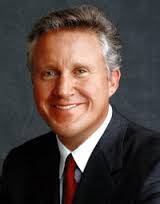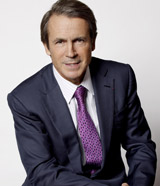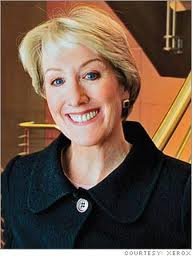 On July 16, 2012, Steven Covey died at the Eastern Idaho Regional Medical Center, Idaho. His death was related to a biking accident. Covey had been a university professor and had written one of the most successful business and personal development books ever written.7 Habits of Highly Effective People
On July 16, 2012, Steven Covey died at the Eastern Idaho Regional Medical Center, Idaho. His death was related to a biking accident. Covey had been a university professor and had written one of the most successful business and personal development books ever written.7 Habits of Highly Effective People
Some management books are worth reading a second time. A few are worthy of a third consideration. However, it is very rare indeed to find a book that is worth reading over and over again. This makes “The 7 Habits” a very special piece of work. More than 25 million copies of the book have been sold in 38 languages. In 2011, Time listed it as one of “The 25 Most Influential Business Management Books.”
Key words
Seven habits, paradigm shift, interdependence, proactive, circle of influence, begin with the end in mind, leadership, management, daily private victory.
Summary
Covey encourages us to make a real break with what we are doing (a paradigm shift) at develop seven habits that will enable us to become efficient in both our professional and personal lives.
The seven habits are 1: Be Proactive; 2: Begin with the End in Mind; 3: Put First Things First; 4: Think Win-Win; 5: Seek First to Understand, Then to be Understood; 6: Synergize, 7: Sharpen the Saw.
Just listing them though is of little use. Covey saw the 7 Habits as being a process (hence the need to read the book several times) with actions that needed to be repeated consistently.
You may not agree with all of his ideas (he was a deeply committed to the Mormon faith, for example) but few people I know who have read the book have not taken some of the ideas away with them. If you get chance, listen to him on You Tube. He had the most wonderful warm, mid-American accent that you can hear as you read his work.
If you just want to read one management / personal development book in your entire life, The Seven Habits would be a pretty good choice.
Interesting quotes from the book:
We are what we repeatedly do. Excellence, then, is not an act, but a habit. Aristotle
Life is, by nature, highly interdependent.
As an interdependent person I have the opportunity to share myself deeply, meaningfully, with others, and I have access to the vast resources and potential of other human beings. Interdependence is a choice only independent people can make. Dependent people cannot choose to become interdependent. They don’t have the character to do it; they don’t own enough of themselves.
Marilyn Ferguson observed, “no one can persuade another to change. Each of us guard a gate of change that can only be opened from the inside. We cannot open the gate of another, either by argument or by emotional appeal.”
Taking initiative does not mean being pushy, obnoxious, or aggressive. It does mean recognizing our responsibility to make things happen.
A serious problem with reactive language is that it becomes a self- fulfilling prophecy.
Happiness, like unhappiness, is a proactive choice. But as proactive  people, we can carry our own physical or social weather with us. We can be happy and accept those things that at present we can’t control, while we focus our efforts on the things that we can.
people, we can carry our own physical or social weather with us. We can be happy and accept those things that at present we can’t control, while we focus our efforts on the things that we can.
To begin with the end in mind means to start with a clear understanding of your destination.
The carpenter’s rule is “measure twice, cut once.”
Management is doing things right; leadership is doing the right things.” Management is efficiency in climbing the ladder of success; leadership determines whether the ladder is leaning against the right wall.
Efficient management without effective leadership is, as one individual has phrased it, “like straightening deck chairs on the Titanic.
Everyone has his own specific vocation or mission on life… Therein he cannot be replaced, nor can his life be repeated. Thus, everyone’s task is as unique as is his specific opportunity to implement it.”
Write your own eulogy. Actually write it out. Be specific.
Things which matter most must never be at the mercy of things which matter least. Goethe
The successful person has the habit of doing the things failures don’t like to do. They don’t like doing them either necessarily. But their disliking is subordinated to the strength of their purpose.
Organize and execute around priorities.
It recognizes that “time management” is really a misnomer – the challenge is not to manage time, but to manage ourselves.
 To paraphrase Peter Drucker, effective people are not problem-minded; they’re opportunity minded. They feed opportunities and starve problems. They think preventively.
To paraphrase Peter Drucker, effective people are not problem-minded; they’re opportunity minded. They feed opportunities and starve problems. They think preventively.
Many expectations are implicit. That’s why it’s so important whenever you come into a new situation to get all the expectations out on the table. People will begin to judge each other through those expectations. Clarifying expectations sometimes takes a great deal of courage.
Leo Roskin taught, “It is the weak who are cruel. Gentleness can only be expected from the strong.”
Creating Win/Win performance agreements requires vital paradigm shifts. The focus is on results; not methods. Most of us tend to supervise methods.
Seek first to understand, then to be understood.
The essence of empathic listening is not that you agree with someone; it is that you fully, deeply, understand that person, emotionally as well as intellectually.
There is intrinsic security that comes from service, from helping other people in a meaningful way. One important source is your work, when you see yourself in a contributive and creative mode, really making a difference. Another source is anonymous service – no one knows and no one necessarily ever will.
The self-renewal process must include balanced renewal in all four dimensions of our nature: the physical, the spiritual, the mental, and the social/emotional.
The Daily Private Victory – a minimum of one hour a day in renewal of the physical, spiritual, and mental dimensions – is the key to the development of the Seven Habits and it’s completely within your Circle of Influence.
See also:
Other Book Reviews
Review: The 7 Habits of Highly Effective People
The Simple Dollar: “The entire premise of The 7 Habits of Highly Effective People is that most people deal with the problems in their life in a scattershot fashion, and this scattershot fashion leads to disillusionment and disorder. Covey’s answer to this is that to be a truly effective person, you need to learn to solve personal and professional problems with a integrated and principle-centered approach – in other words, the decisions you make both personally and professionally should come from the same core set of values and ideas.”
The Seven Habits of HIghly Effective People
Mind Tools: “This is one of the best-known leadership books of recent years, and the key phrase in the title is “people-focused”. Rather than tackling specific problems or making external changes to processes, systems and so on, Covey’s approach helps you focus on developing yourself personally and your relationships with others.”
The Seven Habits of Highly Effective People
Bainvestor: “Covey says that we all have our own paradigm, which is our own map of how we perceive the world and how we think the world should be in our ideal view. Covey writes, “The way we see things is the source of the way we think and the way we act.””
Related Articles
Book Review: The Antidote, Happiness for People Who Can’t Stand Positive Thinking
The Enchanting Adventure: “It is one of the funniest self-help books that I’ve ever read. Even though I am an advocate of positive thinking, I found myself enjoying Burkeman’s often wacky alternative strategies for finding happiness.”
Nothing Fails Like Success by Stephen R. Covey
Starmanship & Associates: “What does that mean exactly? Well, if you consider the challenges you’re facing, you might just be using an old approach that isn’t equal to the challenge. In other words, when we have a challenge and the response is equal to the challenge, that’s called success. But once we have a new challenge, the old, once successful response no longer works. That’s why it’s called a failure.”
 |
 |
 |
|
| Learn about The IKEA Effect, The Baby Jessica Effect and why large bonuses make CEOs less effective | Nobel Prize winner and one of the best sellers this year. A must read for any business student |
The 2012 Olympic Games: Managing your own talent…or not giving it away.



















Pingback: Walking on the Moon.…Armstrong, Hero or Villain ? | GlobalEd
Pingback: BOOK REVIEW: “Thinking, Fast and Slow” by Daniel Kahneman | GlobalEd
Pingback: BOOK REVIEW: “Talent Management : Financial Times Briefings” by Stephen Hoare and Andrew Leigh | GlobalEd
Pingback: BOOK REVIEW: “Predictably Irrational: The Hidden Forces That Shape Our Decisions” by Dan Ariely | GlobalEd
Pingback: BOOK REVIEW: “The Halo Effect” by Phil Rosenzweig | GlobalEd
Pingback: French Management Schools: Stop apologizing! | GlobalEd
Pingback: The Riyadh Women’s University: A major step in the right direction | GlobalEd
Pingback: BOOK REVIEW: “Steve Jobs” by Walter Isaacson | GlobalEd
Pingback: Professors (and other experts) getting it wrong : The Reinhart and Rogoff spreadsheet error | GlobalEd
Pingback: BOOK REVIEW: “A Song in the Night: A Memoir of Resilience” by Bob Massie (2012) | GlobalEd